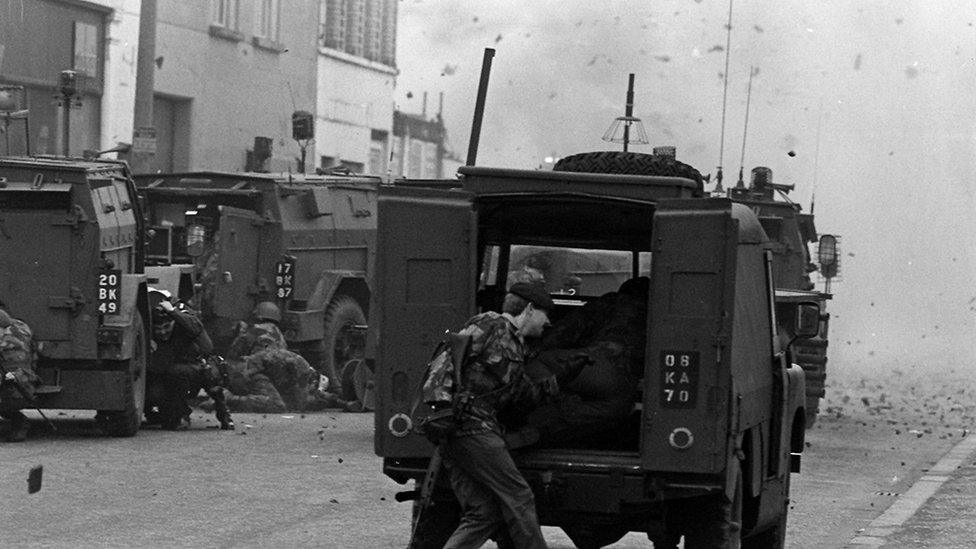Troubles legacy cases: PSNI deputy chief wary of 'drawing a line' under cases
- Published
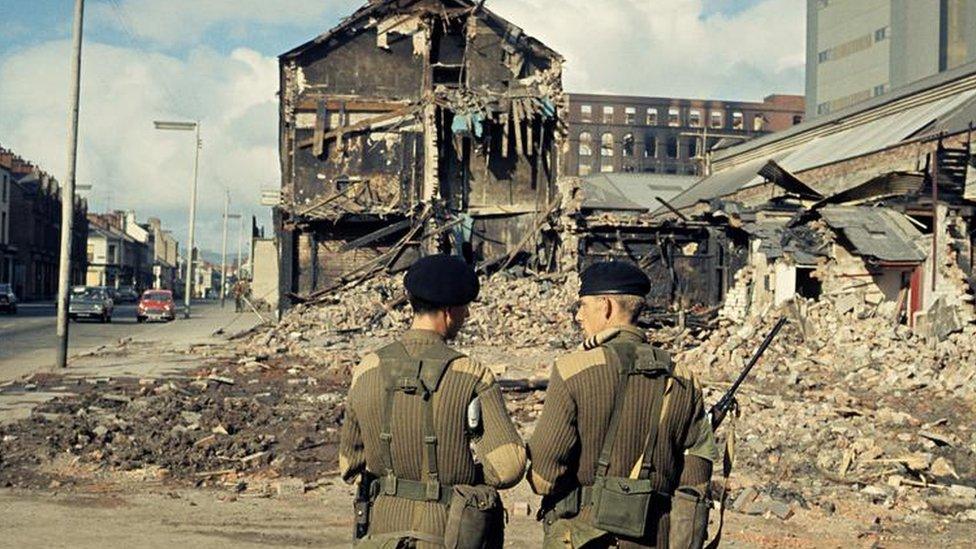
The Troubles was a period of conflict which lasted for 30 years from 1969 and cost the lives of more than 3,500 people
One of Northern Ireland's top police officers has said he does not believe "drawing a line" under Troubles legacy cases will "work for anybody".
Police Service of Northern Ireland (PSNI) Deputy Chief Constable Mark Hamilton said a "mechanism" will still be needed to tackle legacy issues.
The UK government intends to ban all prosecutions related to the Troubles.
The plan proposes ending all criminal investigations, prosecutions, inquests and civil actions.
The proposed legislation has been criticised by all of the political parties in Northern Ireland and some victims' groups.
Last week, Northern Ireland Secretary Brandon Lewis told MPs the government's plan would involve "proper investigations" that comply with human rights obligations.
He said the bill would be introduced in Parliament "very soon" but declined to set a date.
Mr Hamilton told BBC NI's Good Morning Ulster programme that the position of the PSNI since its inception "is to try and bring justice for people".
"I hear people using the expression for many years: 'Drawing a line.'
"In my experience in dealing with legacy, I don't think drawing a line works for anybody. I don't think that bringing things to a formal conclusion is going to work for everybody.
"There has to be a formal mechanism for people to address the issues and people still have a right to want justice.
"We'll wait to see exactly what the government comes up with."
He added: "We started the process in the mid-2000s of reviewing all cases and we're still doing that - so our position as a justice agency is to deliver justice.
"What the government decides to do will be for them to decide and for our politicians to debate - but our position continues to be that we try to seek justice for people."
'Ongoing problem'
Sinn Féin's policing board member Gerry Kelly said: "Legacy is the biggest issue for the PSNI.
"If Sinn Fein came out tomorrow and said 'everybody join the PSNI' that wouldn't make a difference because people make up their own minds," he said.
"If the PSNI continue to deal with legacy the way they are dealing with it now, then there is an ongoing problem.
"We support the PSNI dealing with the present, but when it comes to legacy, who could support any chief constable going into court or actually refusing to give information to the courts or to the ombudsman or whoever it may be."
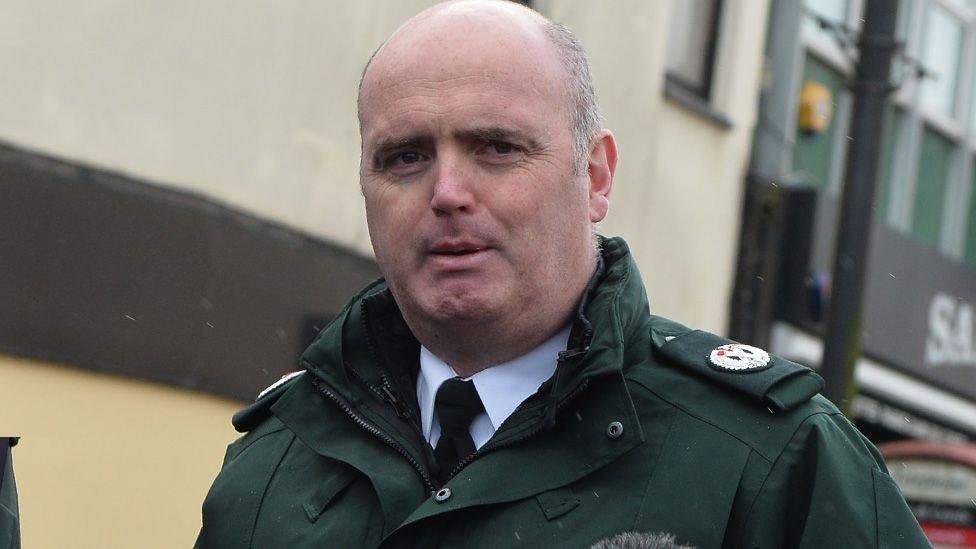
PSNI Deputy Chief Constable Mark Hamilton said bringing legacy to a formal conclusion won't work for everybody
Mr Hamilton said there are "limitations to what we as a legacy agency can say about matters of national security".
"The overhang is that we are perceived as being difficult or destructive," he said.
"I can't walk away from the fact the community sentiment around this is very strong and the fact that we are inundated daily with requests for information and answers.
"The reality is we remain the statutory responsibility for dealing with a whole range of legacy issues form national security to investigations to civil litigations.
"We try to do so with openness, accountability and transparency. It's for the government to decide how to structurally discharge the Article 2 (Human Rights Act) responsibilities."
Related topics
- Published1 March 2019
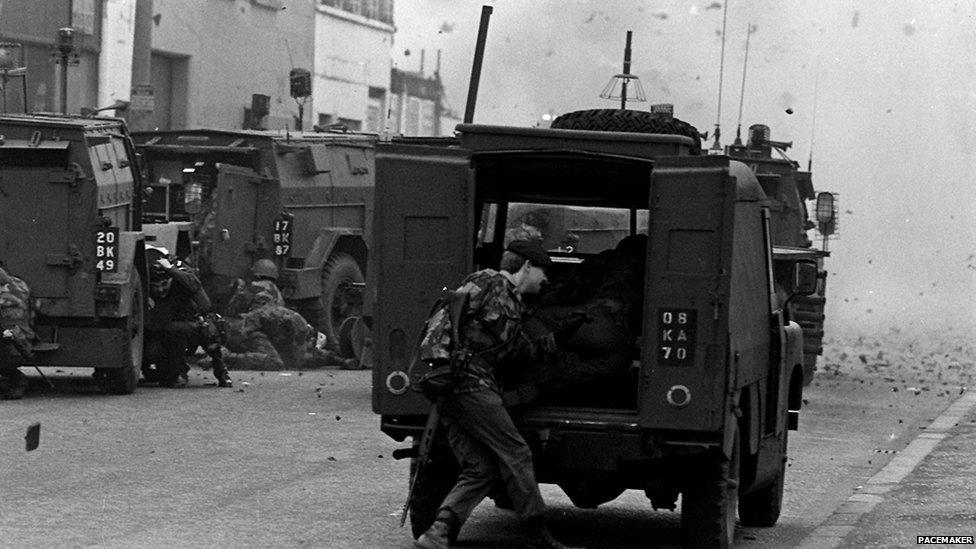
- Published14 July 2021
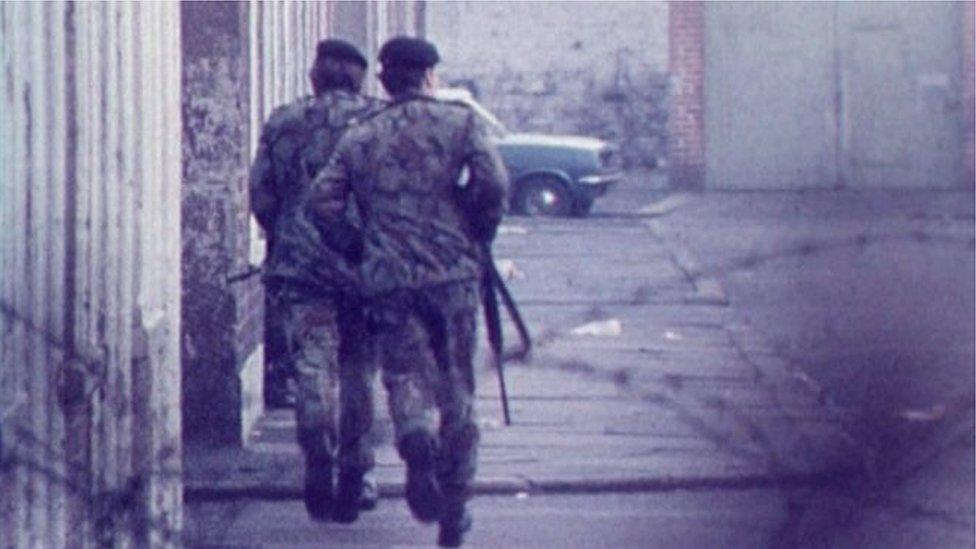
- Published15 July 2021
